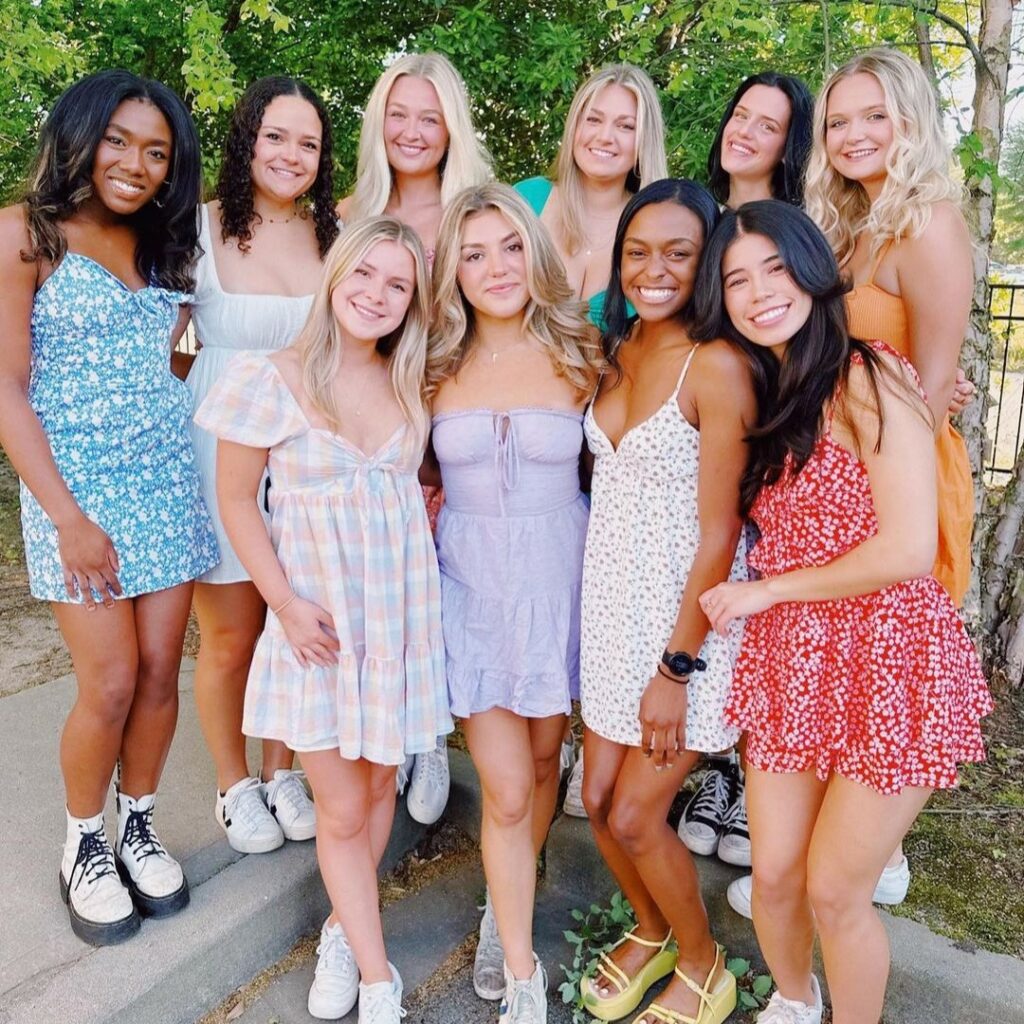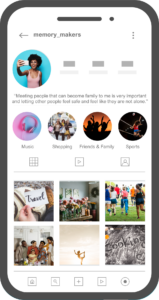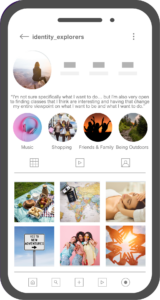A Market and Persona Research Study
About the Project
Download: Full Report | Executive Summary
As the Panhellenic community seeks to grow the reach and impact of the sorority experience — in a time when college enrollment is contracting and the demographics and interests of students are shifting — we looked to better understand the incoming generation of collegiate women. The goal of this research was to:
- Enhance our ability to market the sorority experience with messaging that aligns the experience with their needs and aspirations.
- Segment messaging based on unique personas of Gen Z women, fostering a welcoming and inclusive entry point to learning about the sorority experience.
- Evolve the joining experience and opportunities for new members to be compelling and relevant for the coming generation.
This market research is not about what Gen Z thinks about sororities or what they’ve heard about us. It IS about giving sorority advocates insight into the next generation of potential members, their motivations and drivers related to their college experience and how to best reach these audiences.
Insights at a Glance
While the full 150-page report produced a depth of insights for the sorority community regarding how to market to the incoming population of potential new members, the following insights stood out.
- Gen Z women are determined to create a fool-proof future.
- They seek out people, places and resources that dot the lines to success and seek to tune out potential risks/distractions.
- Their top priorities (regardless of race) for their collegiate experience are getting good grades and career development, and top factors for college selection are academic quality and affordability. Social opportunities were prioritized 7th in both rankings.
- We must evolve marketing to address a lack of brand awareness, interest and alignment.
- Only 1 in 4 Gen Z prospects are extremely or very interested in joining, and interest ranks behind almost all other organization types including study groups, academic/professional clubs, student media, performing and arts groups, and student government.
- Over half of all women surveyed cite too much drama, a judgmental environment and cost as their primary barriers to joining.
- Yet, sororities have what Gen Z women need and want, they just don’t know it yet. They have a strong correlation between sororities and fun events and social opportunities, but a lower association with key things they want in an organization like leadership skill development, mentorship, community service opportunities, career development, networking, and a good housing option.
- Perceptions around recruitment are largely driving the barriers keeping women from being interested in sororities.
- Gen Z women have real concerns about the joining process. 68% cited concerns about being judged by members, 59% cited it being expensive, 45% said having to wear specific clothing, 44% said the time commitment, and nearly a third feared not being able to change her mind and/or not getting into her preferred organization.
- Sororities can and should be the mentor on Gen Z women’s journey.
- Respondents most cited goal in life was being happy and satisfied. This is a culmination of developing authentic, strong relationships and having a meaningful career (and high income).
- Yet, success may come at the cost of their mental health and well-being. 44% cited “anxious” as a personality trait, behind only loyal and creative (top two traits).
- We have the tools and support system to guide them to understand how the sorority experience can be a solution, not the problem (or risk or distraction) – how sorority life can be a foundational experience to achieve their version of success versus just another activity on their resume.
Personas

Culturati’s work helped us see that 1.9MM potential sorority joiners exist (as of Jan. 2024) among 3.7MM prospective female college students planning to attend a four-year university, with those screened out who said they would “never join a sorority.”
Through statistical analysis of the quantitative data, Culturati developed four personas for Gen Z women: Memory Makers, Identify Explorers, Comfort Seekers and Focused Achievers.
Learn more about each in the resources below.
Our Research Partner: Culturati Research & Consulting
 Culturati offers expertise in category-related research, unparalleled Gen Z knowledge and delivers actionable results.
Culturati offers expertise in category-related research, unparalleled Gen Z knowledge and delivers actionable results.
They have conducted qualitative and quantitative studies among Gen Z consumers, including but not limited to focus groups and ethnographies for foundational understanding of the generation, with additional Gen Z experience including the syndicated report “Unlocking Gen Z 2.0: What is shaping and defining Gen Z-ers” which was released in September 2023. Additional relevant research experience includes quantitative studies in the education category as well as projects for other non-profit organizations.
Their team boasts 95+ years of combined experience in design and execution of well-integrated total market research. Culturati is a thought leader in understanding the “New Mainstream” and ethnic populations through the Cultural Mosaic 3.0 syndicated study which texturizes the General Market, Hispanic, African-American and Asian populations through groundbreaking attitudes-based frameworks.
Methodology
Qualitative (Nov. 2023): Three 90-minute focus groups (6 per group) of Gen Z girls in high school, ages 16–18, comprised of both first-generation and non-first-generation students.
Quantitative (Dec. 2023-Jan. 2024): A survey with 836 respondents (Gen Z girls in high school (ages 15-18)), who self-identified as college-bound. A representative sample based on US Census data, including a readable sample of approximately 125–150 first-generation college students across ethnicity groups.
Persona Segmentation: Persona segments were created using advanced multivariate statistical techniques. The four data-driven personas are groups of Gen Z prospects who have similar attitudes regarding college experience priorities, criteria for choosing a college, and opportunities for campus engagement.
Resources
If you reference any data from this project, please use the following citation: Sorority Market & Persona Research by Culturati Research & Consulting, funded through the Amplifying Sorority Campaign.






